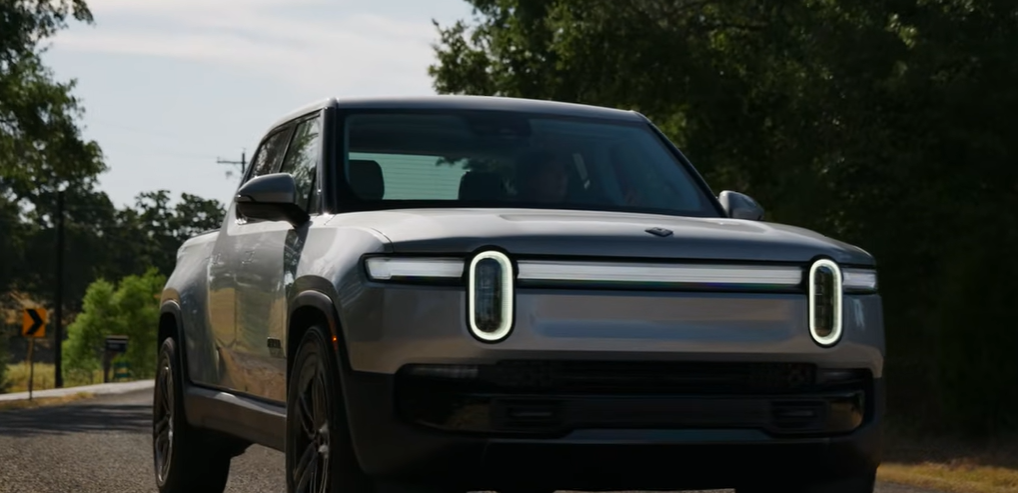Once heralded as a pioneer in electric mobility, Rivian Automotive is now a prime example of how market aspirations can surpass practical considerations. The financial and automotive industries have taken notice of the company’s $250 million settlement of a class action lawsuit. The settlement came after claims that Rivian had misled investors about demand, production readiness, and vehicle pricing during its widely reported initial public offering (IPO).
Rivian entered the market with incredible momentum when it went public in November 2021. Investors thought Rivian could appeal to the adventurous consumer segment with its R1T pickup and R1S SUV, comparing its early trajectory to Tesla’s first significant leap. The company’s value momentarily surged above that of automakers with a century-old history. However, behind the scenes, Rivian’s financial foundations were being subtly weakened by inflation, supply chain interruptions, and unrealistic pricing structures.
The class action lawsuit claimed that Rivian’s IPO filings and post-offering communications presented an overly optimistic picture. It was filed in 2022 and was certified in 2024. The plaintiffs alleged that Rivian had concealed the slowing of orders due to inflation and rising interest rates, overstated demand, and underestimated costs. Investors reacted negatively when the company later increased prices by $12,000 to $14,000 per vehicle. In just ten days, shares fell 39 percent, wiping out billions of dollars in market value.
Rivian Automotive, Inc. – Corporate Overview
| Company Name | Rivian Automotive, Inc. |
|---|---|
| Headquarters | Irvine, California, USA |
| Founded | 2009 |
| Founder & CEO | RJ Scaringe |
| Industry | Electric Vehicles, Automotive Technology |
| IPO Date | November 10, 2021 |
| Stock Symbol | NASDAQ: RIVN |
| Lawsuit Type | Securities Class Action (IPO Fraud and Misrepresentation) |
| Settlement Amount | $250 Million |
| Court | U.S. District Court, Central District of California |
| Key Allegations | Misrepresentation of vehicle pricing and demand, failure to disclose production issues |
| Reference | Reuters (https://www.reuters.com/business/rivian-agrees-pay-250-million-settle-ipo-fraud-lawsuit-2025-10-23) |

The leadership of Rivian insisted that the lawsuit’s allegations were overblown. The business stressed that the settlement was a choice to avoid further diverting attention from its production and growth objectives rather than an admission of wrongdoing. Nevertheless, the result is unquestionably significant. It is one of the biggest investor settlements in the EV industry, indicating that accountability is getting noticeably stronger in new tech sectors.
A pricing strategy that was initially appealing but turned out to be remarkably unsustainable was at the center of the dispute. Soon after deliveries started, Rivian was forced to make an unpopular price increase because its early vehicles were underpriced in comparison to production costs. According to the lawsuit, Rivian knew that these pricing strategies would put a strain on its finances, but it still went ahead to keep investors excited before its initial public offering.
Rivian’s executives “made materially false and misleading statements,” according to the Rosen Law Firm, which was representing shareholders. Order cancellations were increasing, production difficulties were growing, and cost estimates were becoming more and more off, according to their investigation. Investors claimed that their choices to purchase shares at exorbitant prices were directly impacted by this lack of transparency.
Many observers believe that Rivian’s situation is similar to a larger story that other electric vehicle startups are telling. Lawsuits were also brought against companies such as Nikola Corporation and Lordstown Motors for misrepresenting their capabilities, illustrating a persistent conflict between investor trust and innovation. Even though Rivian’s engineering accomplishments were more credible, it was nevertheless subject to comparable market forces.
The founder and CEO of Rivian, RJ Scaringe, constructed the business with the accuracy of an engineer and the hopefulness of a visionary. However, even his steady leadership was unable to protect the business from financial instability. A total of $183 million in cash and $67 million in insurance coverage will be used to pay the $250 million settlement. The decision, according to analysts, is a practical one that enables Rivian to refocus on the impending R2 SUV launch, a model thought to be essential to long-term survival, and reset its public image.
The case of Rivian demonstrates how challenging it is now to strike a balance between accountability and innovation. Faster growth, cleaner energy, and technological freedom are some of the ambitious promises that have propelled the electric vehicle industry, but they can also raise expectations to an exceptionally high level. Today’s investors are much less understanding when businesses fall short of expectations, particularly in an environment where public trust is closely tied to sustainability narratives.
Despite being expensive, the settlement gives Rivian a chance to restore his reputation. Strong design, cutting-edge battery technology, and a devoted customer base are the company’s core strengths, according to analysts. Rivian is one of the few startups that can actually compete with well-known brands thanks to the remarkable performance, craftsmanship, and dependability of its cars.
Nevertheless, the case serves as a reminder of how even the most promising endeavors can fail when communication becomes out of step with reality. “Rivian’s biggest challenge wasn’t engineering—it was expectation management,” said one industry analyst. That observation sums up a lesson that applies to all contemporary tech-driven businesses, not just those in the automotive industry: ambition must be balanced with clarity.

